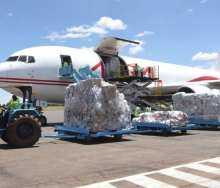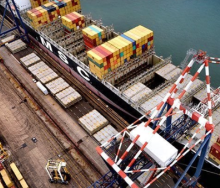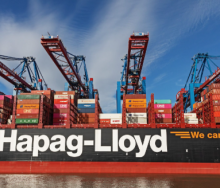Donald Trump’s victory in the US Presidential Election is ‘a step in the wrong direction’ for international trade as importers fear another spike in ocean container shipping freight rates.
Trump has vowed blanket tariffs of up to 20% on all imports into the US and additional tariffs of 60% to 100% on goods from China.
Data from ocean and air freight intelligence platform, Xeneta, shows that the last time Trump ramped up tariffs on Chinese imports during the trade war in 2018, ocean container shipping freight rates spiked more than 70%.
“Shipping is a global industry feeding on international trade, so another Trump Presidency is a step in the wrong direction,” said Peter Sand, Xeneta Chief Analyst.
“The knee-jerk reaction from US shippers will be to frontload imports before Trump is able to impose his new tariffs. Back in 2018, the tariff on Chinese imports was 25%, now it is increasing up to 100% so the incentive to frontload is even greater.”
Sand said for those with warehouse space and the goods to ship, frontloading imports was the simplest way to manage this risk in the short term but that it came with its own problems.
He said sudden increase in demand on major trade lanes into the US when ocean supply chains were already under pressure due to disruption in the Red Sea, would place upward pressure on freight rates.
“We saw the negative impact of tariffs during Trump’s first term in office in 2018 when ocean container shipping rates spiked 70%. Shippers will be fearing more of the same this time around.
“In the longer term, another Trump presidency will reignite the trade war with China and provoke retaliatory action. In 2018, we saw China respond to US aggression by imposing tariffs of its own, which added even more fuel to the fire, so there is a risk this situation could escalate further in the months and years to come.”
Average spot rates from the Far East to the US West and US East Coasts have remained relatively flat in the weeks leading up to the US election, down 3.5% and 2.5% respectively since 15 October.
However, the current average spot rates of USD 5 210 per FEU (40ft container) into the US West Coast and USD 5 820 per FEU into the US East Coast are 167% and 134% higher than 12 months ago, primarily due to the ongoing impact of conflict in the Red Sea.
Sand added that 2024 had been a brutal year for US shippers, who have endured massive disruption due to the Red Sea crisis and spiralling freight rates. There is also the looming threat of further strike action at ports on the US East Coast and Gulf Coast in January next year.













